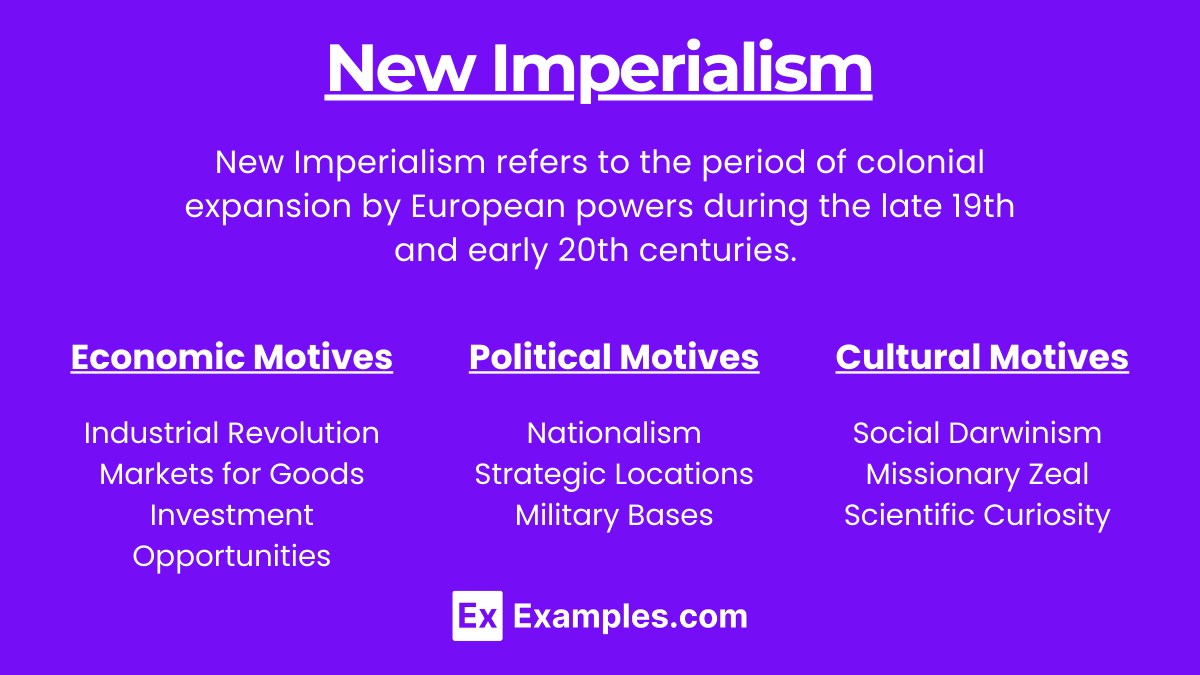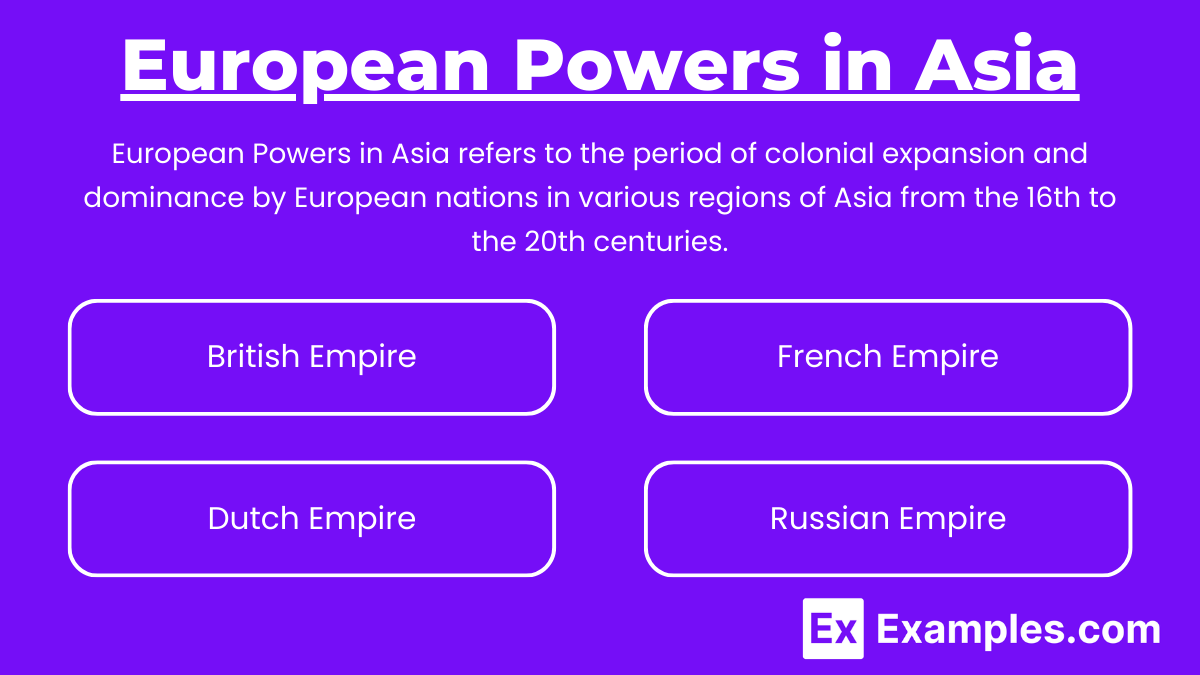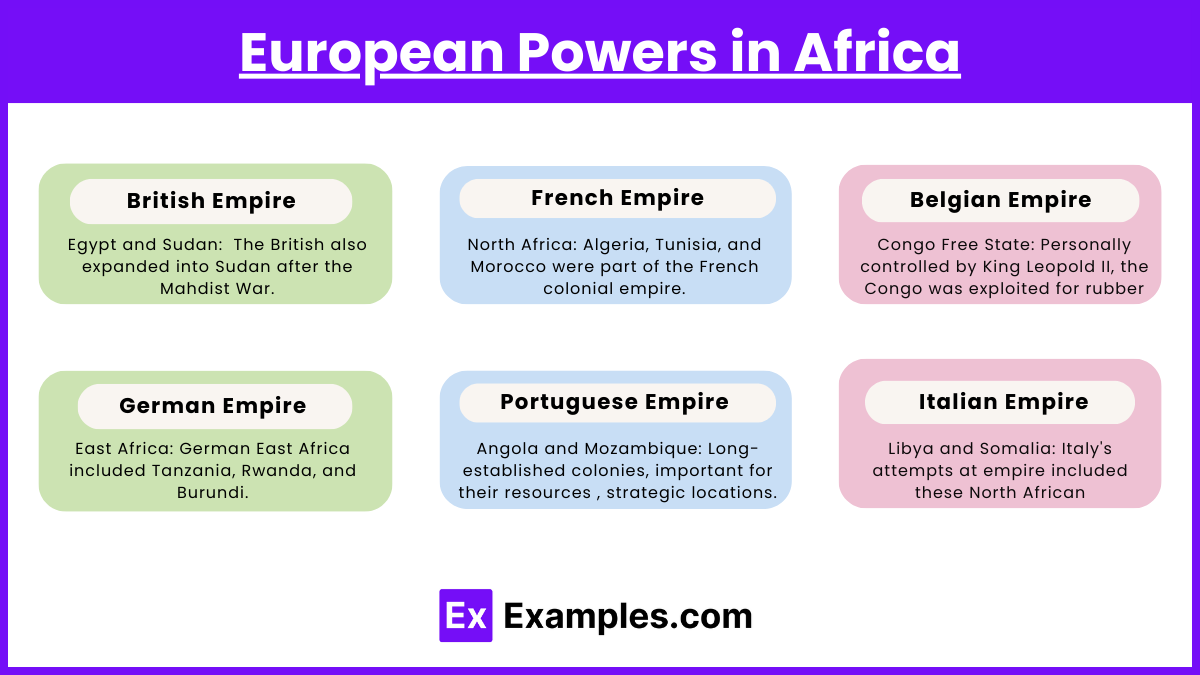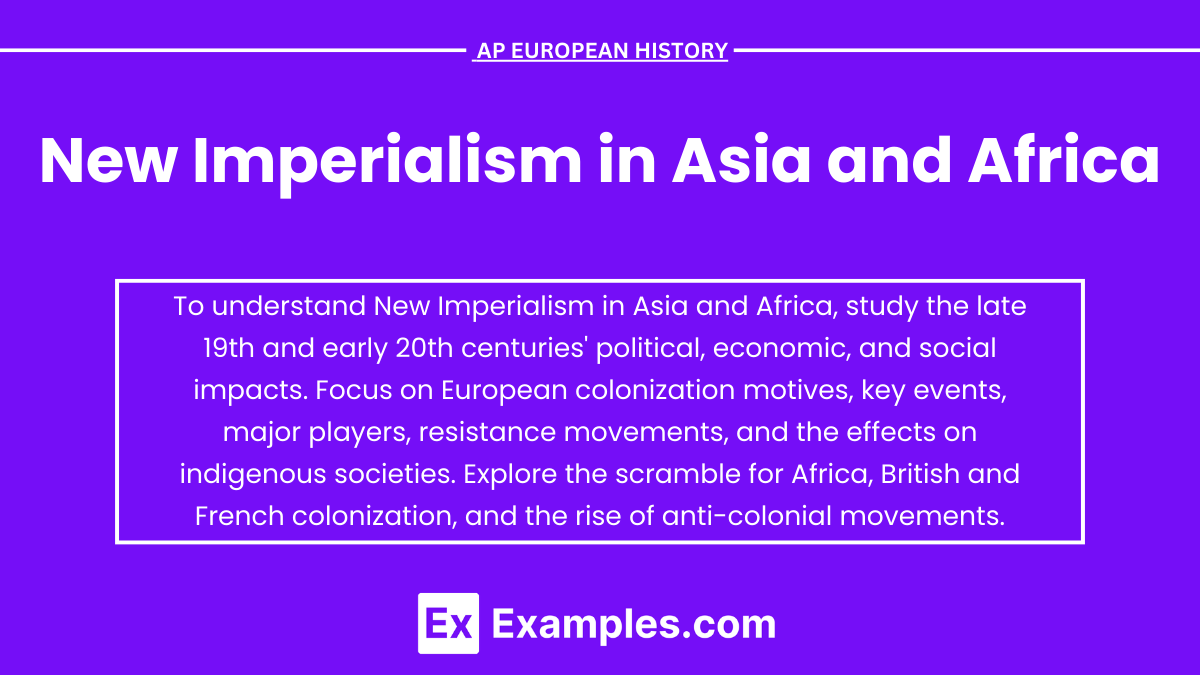New Imperialism, spanning from the late 19th to early 20th centuries, marked a period of aggressive European expansion into Asia and Africa. Driven by economic interests, political competition, and social ideologies, European powers sought to exploit resources, establish strategic outposts, and spread Western culture. This era, a critical topic in AP European History, significantly reshaped global dynamics, leading to profound economic exploitation, political reorganization, and cultural changes in colonized regions, while also setting the stage for future conflicts and independence movements. Understanding New Imperialism is essential for comprehending modern global history.
Learning Objectives
By studying the topic of “New Imperialism in Asia and Africa” for the AP European History exam, you should aim to understand the economic, political, and social motivations behind European colonization, the major colonial powers and their territories, and the impact of imperialism on indigenous populations. Additionally, you should learn about key events like the Berlin Conference, the role of strategic locations such as the Suez Canal, and the lasting consequences of imperialism, including economic dependency, cultural changes, and geopolitical tensions.
New Imperialism

New Imperialism refers to the period of colonial expansion by European powers during the late 19th and early 20th centuries. This era was characterized by an unprecedented rush for overseas territories, driven by various political, economic, and social factors. Unlike earlier forms of imperialism, New Imperialism was marked by a more aggressive and systematic approach to colonization.
Causes of New Imperialism
- Economic Motives:
- Industrial Revolution: The need for raw materials such as rubber, oil, and metals to fuel industrial growth in Europe.
- Markets for Goods: European powers sought new markets to sell their manufactured goods.
- Investment Opportunities: Profitable investment opportunities in colonies.
- Political Motives:
- Nationalism: The desire to enhance national prestige and power.
- Strategic Locations: Control of key strategic points, such as the Suez Canal.
- Military Bases: Establishment of military bases to project power globally.
- Social and Cultural Motives:
- Social Darwinism: The belief in the superiority of European civilization and the duty to civilize “lesser” cultures.
- Missionary Zeal: The desire to spread Christianity and European values.
- Scientific Curiosity: Interest in exploring unknown territories.
European Powers in Asia

European Powers in Asia refers to the period of colonial expansion and dominance by European nations in various regions of Asia from the 16th to the 20th centuries. During this time, countries like Britain, France, the Netherlands, and Russia established colonies, protectorates, and spheres of influence across the continent. They sought control over valuable resources, trade routes, and strategic territories, leading to significant political, economic, and cultural impacts on the Asian countries under their rule.
- British Empire:
- India: The jewel in the crown of the British Empire, India was a significant source of wealth and raw materials. The British established extensive infrastructure, including railways and telegraphs.
- China: Britain sought to control trade with China, leading to the Opium Wars and the establishment of treaty ports.
- Southeast Asia: British control extended to Burma (Myanmar) and Malaya, securing resources like rubber and tin.
- French Empire:
- Indochina: France colonized Vietnam, Laos, and Cambodia, focusing on economic exploitation and cultural assimilation.
- China: Like Britain, France established treaty ports and spheres of influence in China.
- Dutch Empire:
- Indonesia: The Dutch East Indies (modern-day Indonesia) was a crucial colony for the Netherlands, providing spices, rubber, and oil.
- Russian Empire:
- Central Asia: Russia expanded into Central Asia, annexing territories like Kazakhstan, Turkmenistan, and Uzbekistan.
European Powers in Africa

- British Empire:
- Egypt and Sudan: Control of the Suez Canal was vital for British interests. The British also expanded into Sudan after the Mahdist War.
- Southern Africa: The British dominated South Africa, exploiting its gold and diamond resources. Conflicts with the Boers (Dutch settlers) led to the Boer Wars.
- East Africa: Colonies such as Kenya and Uganda were established, focusing on agriculture and resource extraction.
- French Empire:
- West Africa: France controlled a vast region including Senegal, Mali, Ivory Coast, and Niger.
- North Africa: Algeria, Tunisia, and Morocco were part of the French colonial empire.
- Central Africa: French Equatorial Africa included modern-day Gabon, Congo, and the Central African Republic.
- Belgian Empire:
- Congo Free State: Personally controlled by King Leopold II, the Congo was exploited for rubber and ivory, often with brutal methods.
- German Empire:
- Southwest Africa: Modern-day Namibia, where the Herero and Namaqua genocide occurred.
- East Africa: German East Africa included Tanzania, Rwanda, and Burundi.
- Portuguese Empire:
- Angola and Mozambique: Long-established colonies, important for their resources and strategic locations.
- Italian Empire:
- Libya and Somalia: Italy’s attempts at empire included these North African and Horn of Africa regions.
- Ethiopia: Italy faced a significant defeat at the Battle of Adwa in 1896 but later occupied Ethiopia in 1936.
Impact of New Imperialism
- Economic Exploitation: Colonies were sources of raw materials and markets for European goods, often at the expense of local economies.
- Cultural Changes: European languages, education systems, and cultural practices were imposed on colonized peoples.
- Political Changes: Traditional power structures were dismantled and replaced with European administrative systems. Boundaries drawn by colonial powers often ignored ethnic and cultural divisions, leading to future conflicts.
- Social Impact: Introduction of European legal systems and social norms. Displacement and exploitation of indigenous populations.
- Resistance and Independence Movements: Colonized peoples resisted through both armed struggle and intellectual movements. Post-World War II, decolonization movements gained momentum, leading to the independence of many Asian and African nations.
Examples
Example 1: British Colonization of India (1858-1947)
The British East India Company initially controlled India, but after the Sepoy Mutiny in 1857, the British Crown took direct control in 1858. This period saw extensive economic exploitation, the establishment of British education systems, and significant cultural changes.
Example 2: Scramble for Africa (1881-1914)
European powers, including Britain, France, Germany, Belgium, and Italy, rapidly colonized almost the entire African continent. They divided Africa into colonies without regard to existing ethnic or cultural boundaries, leading to long-term social and political disruption.
Example 3: French Colonization of Indochina (1858-1954)
France established control over Vietnam, Laos, and Cambodia. French colonial policies included the exploitation of natural resources and the introduction of French culture and language, which had a lasting impact on the region.
Example 4: Japanese Empire Expansion (1894-1945)
Japan emerged as an imperial power by defeating China in the First Sino-Japanese War (1894-1895) and Russia in the Russo-Japanese War (1904-1905). Japan colonized Korea (1910-1945) and expanded its influence in Manchuria and other parts of Asia, driven by a need for resources and strategic dominance.
Example 5 : Belgian Congo (1885-1960)
King Leopold II of Belgium personally controlled the Congo Free State, exploiting its resources, particularly rubber, with extreme brutality. The exploitation and atrocities committed during this period caused significant loss of life and long-term economic and social damage.
Multiple Choice Questions
Question 1
What was one of the main driving forces behind the New Imperialism in Asia and Africa in the late 19th century?
A. Desire for cultural exchange
B. Search for new trade routes
C. Industrial nations’ need for raw materials
D. Interest in spreading democracy
Explanation
C. Industrial nations’ need for raw materials.
During the late 19th century, European powers were experiencing the Industrial Revolution, which significantly increased their demand for raw materials such as cotton, rubber, and minerals. Colonizing regions in Asia and Africa allowed these nations to secure a steady supply of these essential resources to fuel their growing industries.
Question 2
Which of the following was a significant consequence of New Imperialism for the indigenous populations in Asia and Africa?
A. Enhanced political autonomy
B. Economic prosperity and development
C. Widespread social and cultural disruption
D. Improved relations with European powers
Explanation
C. Widespread social and cultural disruption.
New Imperialism often led to the dismantling of traditional social structures and cultural practices. European powers imposed their own systems of governance, education, and religion, leading to significant disruptions in the lives of indigenous populations. The introduction of new economic systems also often marginalized local economies and labor practices.
Question 3
Which European power was primarily responsible for the colonization of India during the period of New Imperialism?
A. France
B. Germany
C. Britain
D. Portugal
Explanation
C. Britain.
Britain was the primary European power responsible for the colonization of India. The British East India Company initially controlled trade and gradually expanded its influence, eventually leading to full British colonial rule over India. This period saw extensive economic exploitation and significant cultural and social changes imposed by the British authorities.


